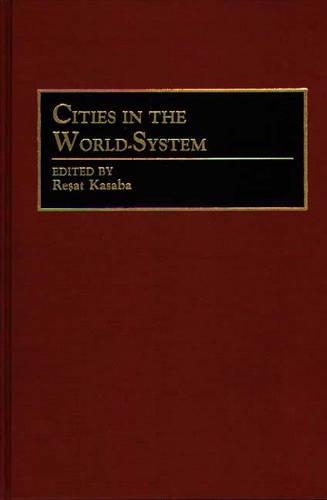
Cities in the World-System
(Hardback)
Publishing Details
Cities in the World-System
By (Author) Resat Kasaba
Bloomsbury Publishing PLC
Praeger Publishers Inc
30th October 1991
United States
Classifications
Tertiary Education
Non Fiction
Economic history
307.7609
Physical Properties
Hardback
218
Description
The contributors to this collection question the boundaries and limitation that are imposed on the study of cities by urban sociology. They do not disagree that during most of their history, the regions and peoples of the world have been organized hierarchically and that there are differences that need to be explained. But they see the processes and relations that link regions and people together as the main factor that explains these differences. It is the differentiation and not the differences per se that constitute their common focus and, in their respective accounts, they take care not to privilege any one region or time period on the basis of its presumed special characteristics. Against this background the book is divided into three parts. Part one deals with places outside of Western Europe and with times that preceded the establishment of the European-based capitalist world-economy. The articles in Part Two discuss the different aspects of the concept of hegemony and the establishment of domination as these apply to cities in the world-system. In Part Three the focus shifts back to extra-European zones where the patterns of transformation around cities under the aegis of capitalist world-economy are examined. This book constitutes an addition to the literature on cities. By approaching cities from a large scale and a long-term perspective, the contributors develop an historical explanation of some of the different patterns of development that affected particular cities in their interaction with the world-economy. This historical and holistic perspective represents an improvement over most of urban sociology, where cities or aspects of cities are studied in isolation from all contingent and contextual factors. This book can be used by scholars, graduate, and upper-division undergraduate students of urban history and sociology.
Author Bio
RESAT KASABA is Assistant Professor at the H. M. Jackson School of International Studies, University of Washington, and Adjunct Professor of Sociology. He is the author of The Ottoman Empire and the World-Economy and has contributed articles and essays to Commercial Agriculture in the Middle East, Review, and Rethinking the Nineteenth Century (Greenwood Press, 1988).
